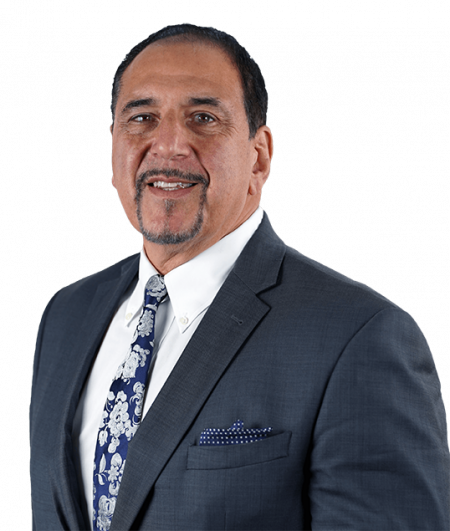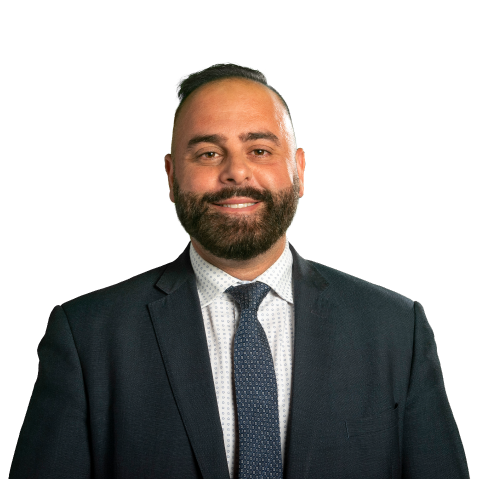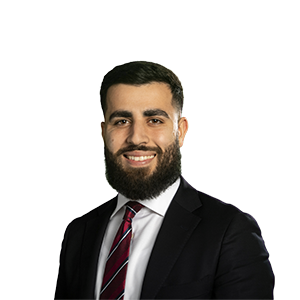Medical negligence lawyers
Medical negligence claims:
Your rights, our fight
When medical treatment goes wrong, the impact on your life can be devastating. At GMP Law, we understand that seeking legal help after experiencing medical negligence can feel overwhelming. Our experienced medical negligence lawyers are here to guide you through the process with compassion and expertise.
We’re here to ensure you receive the financial support you’re entitled to, allowing you to focus on what matters most – your health and recovery.
Our medical malpractice lawyers have managed thousands of complex medical negligence cases on a no win, no fee basis. If you would like to discuss your claim and understand your right to compensation, call us for an obligation-free consultation with one of our experienced lawyers.
Our Unique Fee Reduction Guarantee
Satisfaction first: Fees second
If our service fails to meet the high standards we set, we’ll reduce our fees. We are the only Australian firm that backs our service with a written cost reduction promise, giving you total confidence in your claim.
Understanding medical negligence claims
Medical negligence or malpractice can occur in any setting where you are under treatment from a healthcare professional—commonly a doctor, surgeon, or nurse—who fails in their duty of care.
If you have suffered an injury or the worsening of an existing condition as a result of medical negligence, you may be entitled to compensation. Some common situations of professional negligence by a health professional include:
Misdiagnosis or delayed diagnosis:
When a healthcare provider fails to correctly diagnose a medical condition or takes an unreasonably long time to make an accurate diagnosis which results in worse or terminal health outcomes.
Surgical errors:
Where a surgeon makes a mistake during surgery which causes serious ongoing health complications. This can include damage caused to organs, leaving surgical instruments inside the patient, or performing unnecessary surgery.
Birth injuries:
Injuries to infants or mothers during childbirth due to medical negligence, such as mishandling of forceps, failure to perform a timely C-section, or not addressing complications during delivery.
Anaesthesia errors:
Administering incorrect amounts of anaesthesia or neglecting to monitor a patient’s vital signs during a procedure can lead to severe complications or even fatalities.
Medication errors:
These may include prescribing the incorrect medication, wrong dosage, or overlooking a patient’s allergies or drug interactions, resulting in significant adverse reactions or harm to the patient.
Negligence in nursing homes:
In long-term care facilities, medical negligence can occur when staff members fail to provide adequate care, leading to physical, emotional, or psychological harm to residents – known as elder abuse.
We're here to help.
Our medical negligence services
Explore our areas of expertise

Eligibility for medical negligence compensation
To make a successful medical negligence claim, we must be able to demonstrate:
- You received medical treatment from a healthcare provider and they failed in their duty of care to provide you with reasonable care
- You have suffered a physical or psychological injury, harm, or loss as a result.
Compensation can be claimed for:
- Cost of treating the immediate physical or psychological injury
- Ongoing medical expenses, such as domestic care to recuperate from long-term injuries
- Non-economic (pain and loss) damages for psychological or emotional distress
- Loss of earnings or superannuation if the incident leaves you unable to work.
It’s important to note that close family members may also be eligible to claim compensation if they have been affected by the negligent treatment of a loved one, including costs for caring or compensation for nervous shock.
Even if you’re uncertain about claiming, we encourage you to reach out. Our free initial consultation means you have nothing to lose by exploring your options.

Factors affecting compensation
Many factors influence the personal injury compensation you may receive:
- Severity of injury: The extent and permanence of physical or psychological damage
- Financial impact: Lost income, medical expenses, and future care needs
- Causation: Clear link between the negligent treatment and your injuries
- Insurance coverage: The relevant medical indemnity policy limits.
Most compensation claims are paid through the healthcare provider’s insurance rather than directly by the medical professional. Since 2002, the Australian government has subsidised medical indemnity insurance premiums to ensure continued medical services in high-risk specialties (via the Medical Indemnity Act 2002).
At GMP Law, we’re committed to helping you understand your rights and options. We’ll work tirelessly to ensure you receive the maximum compensation you’re entitled to under the law.
Learn more: Navigating the Complexities of Medical Negligence Cases
Why Choose Gerard Malouf & Partners
No Win No Fee
Fee transparency that you can trust
At GMP Law, we’re committed to ensuring you have nothing to lose.
If we don’t win your case, you won’t pay a cent for our services. This means you can focus on healing without worrying about legal costs.
How it works
No upfront costs
No contingency fee
We’ll only charge you if we win.
We maintain integrity by carefully evaluating each case. If we believe it’s unlikely to result in compensation or if the costs outweigh the benefits, we won’t take it on.
This commitment to our client’s best interests, as well as fee transparency, sets us apart from other law firms.
With a 98% success rate and over $4 billion in settlements, we’re dedicated to delivering exceptional results for our clients.
Frequently asked questions about medical negligence claims
How long do I have to make a medical negligence claim?
Generally, you have three years from the date you first became aware of your injury to commence legal proceedings. However, exceptions may apply, so it’s important to seek legal advice as soon as possible.
Learn more: How long after the fact can I make a medical negligence claim?
What evidence do I need for my claim?
Key evidence includes:
- Your complete medical history
- Medical reports
- Expert opinions
- Witness statements
- Documentation of financial losses.
How long does a medical negligence claim take?
Each case is unique, but medical negligence claims typically take 12-24 months to resolve. Complex cases may take longer, especially if they proceed to court rather than settling through mediation.
Justice for victims of medical negligence
$160,000 settlement for hospital negligence
Our client sought treatment at her local hospital for severe abdominal pain and nausea. During admission, an incorrectly inserted intravenous cannula caused serious complications.
The incident resulted in cephalic vein damage and median nerve damage, causing ongoing pain, swelling, and numbness to her arm, including loss of dexterity in her hand.
- Gathered extensive medical evidence
- Argued hospital negligence for failing to address patient complaints
- Obtained expert medical opinions
- Commenced legal proceedings against the local health district
- Negotiated through mediation.
$1.25 million combined settlement for surgical negligence
Our client underwent a total thyroidectomy that resulted in bilateral vocal chord palsy and loss of function in her laryngeal nerves.
The surgery left our client mute, causing severe physical and psychological trauma. Her husband also suffered psychological injury from witnessing the devastating impact on their lives.
- Built a comprehensive case around failure to warn of surgical risks
- Gathered expert medical and psychiatric evidence Pursued both medical negligence and nervous shock claims
- Demonstrated breach of expected standard of care
- Negotiated effectively through mediation.
Real cases, real results
The compensation claim process: Your journey with GMP Law
Initial consultation
Evidence gathering
Claim submission
Negotiation
Court representation
Ongoing support
Our promise to you
Why trust GMP Law with medical negligence claim?
At GMP Law, we handle your claim so you can concentrate on what matters most: your recovery.
We commit to
Clear, straightforward communication
Regular updates on your case as it progresses
A personal injury lawyer who understands your unique situation
Vigorous negotiation to maximise your compensation
Empathetic support throughout your journey
Specialised knowledge
Our accredited personal injury lawyers have years of experience in accident injury claims, giving us deep insight into the nuances of these claims.
Proven track record
Difficult case policy
Australia-wide assistance
With lawyers across the country, we’re here to help, wherever you are.
Meet the medical negligence team
Meet some of the diverse and dynamic compensation lawyers who support our clients with their medical negligence or malpractice claims.
We're here to help maximise your compensation
Book your free, confidential consultation with one of our personal injury lawyers using the form below, or simply call us 1800 004 878.















